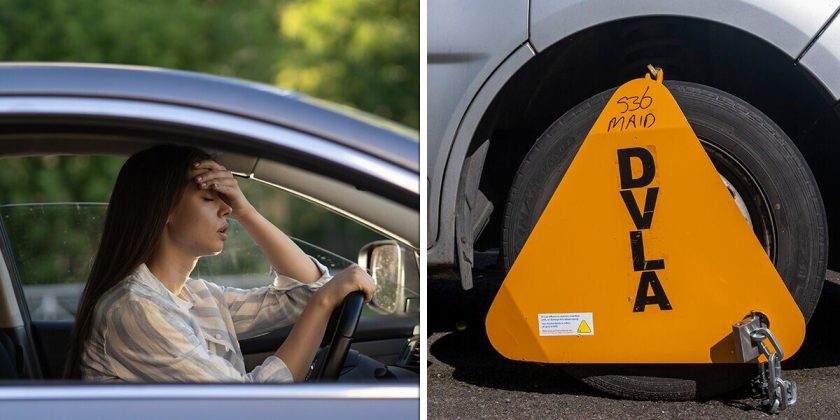DVLA manager explains the importance of taxing your vehicle
We use your sign-up to provide content in ways you’ve consented to and to improve our understanding of you. This may include adverts from us and 3rd parties based on our understanding. You can unsubscribe at any time. More info
Motorists across the UK have been reminded of the need to inform the DVLA about specific medical conditions that may affect their driving ability. If they fail to do so, they could face fines of up to £1,000.
Drivers can also be prosecuted if they are involved in an accident and haven’t disclosed relevant medical information.
In some cases, motorists may be forced to surrender their driving licences.
The DVLA states it is important that drivers notify the agency if they develop a “notifiable” medical condition or disability.
Motorists should also inform the DVLA if a condition or disability has gotten worse since they received their licence.
Notifiable conditions are considered as anything that could affect the ability to drive safely.
They can include:
Diabetes or taking insulin
Syncope (fainting)
DON’T MISS
UK drivers warned of fines for not having correct stickers in Europe [WARNING]
EVs ‘cheaper’ than petrol and diesel cars as drivers may save £1,900 [INSIGHT]
F1 driver Perry McCarthy praises charity’s ‘fantastic’ car collection [REVEAL]
Heart conditions (including atrial fibrillation and pacemakers)
Sleep apnoea
Epilepsy
Strokes
 Book here
Book here
Book your MOT with the UK’s #1 MOT tester – just click the link to book online.
 View Deal
View Deal
Glaucoma
If drivers need to check whether their condition should be reported, they can do so in one of two ways.
These are:
Using the online service to check if the condition needs to be reported
Checking the A to Z list for a specific condition
Motorists will then be told how to report their condition.
This will either be via the online service or by printing and sending a paper form.
When can the DVLA revoke a licence?
Drivers must give up their licence if any of the following is true:
Your doctor tells you to stop driving for three months or more
Your medical condition affects your ability to drive safely and lasts for three months or more
You do not meet the required standards for driving because of your medical condition
Once motorists meet the medical requirements again, they can apply to get their licence back.
Full details on that process are available here.
Source: Read Full Article



